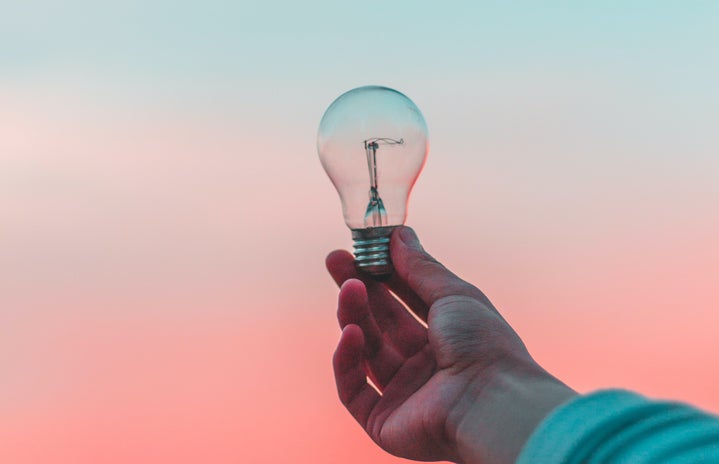If you’re like me and find it difficult to get to sleep when you’re feeling stressed, then you’ll also know what it feels like to be consumed by a sense of helplessness whenever you go to bed . Problems that you can forget about during the day start to niggle at you after dark, and can slowly intensify, in your mind, the longer you go without falling asleep. Then the paranoid activity begins! Some nights, I find myself incessantly checking over past essays or getting up and checking all the downstairs locks, or even going and turning off all the electric supplies in my household, just to try and find some sense of safety when all other aspects of my life feel too stressful or uncontrollable. With this in mind, I’ve put together five steps that have been helping me feel calmer when I go to bed, and that I hope will help you too.
Step 1: No caffeine after 4pm
I am such a caffeine fiend that I do struggle at times to put down the coffee after 4pm. I also forget that tea and chocolate have some levels of caffeine, and have found that if I cut down on these things before I go to bed, then I do find it easier to at least feel tired right before I settle in for the night. Caffeine is a tricky one because it ultimately gets me through the day but can also produce a weird afternoon haze, where I end up becoming unproductive, dehydrated and then, later, stressed when it gets to bedtime and I haven’t achieved enough in the second half of the day. So, I recommend embracing caffeine in the morning, and other, more hydrating beverages in the afternoon. I’m one of those odd people who doesn’t really like drinking water – but I find squeezing some orange or lemon into some water can make a boring drink more enjoyable. So put down the cuppa and drink more water in the afternoons – for me, it really does reduce the caffeine haze and help me fall asleep easier at night!
Step 2: Eating dinner earlier
If I find myself feeling stressed at night, then feeling really full certainly doesn’t help to make me feel more relaxed and ready to sleep. I am the kind of person who eats a big breakfast, a small lunch, and a big dinner, so if you’re like me, you probably still feel quite full when you eat dinner after eight and go to bed around eleven. I think I always sleep better when I’ve eaten earlier in the evening, because then it doesn’t sit heavy on me when I’m lying in bed. This can be difficult because of schedules, but if you’ve got the time, I would advise pencilling dinner in earlier, so that you can feel more comfortable when you do settle down to sleep.
Step 3: Stop work at a reasonable hour
This is probably the most difficult step, especially for me as a third year student in the midst of deadlines and dissertation research. However, in the long run, it does help to put the work aside at a certain point during the evening. I find that if I keep staring at my laptop for too long after 8pm, I just get a headache and don’t end up achieving any more work. I’ve discovered that when I feel like this, a good thing to do is to set myself reasonable goals before dinner, and try to only have a couple more bits and pieces to achieve after I’ve eaten, then I can more often than not put my work aside before 8pm, or more realistically 9pm. While this doesn’t happen every day, it does make a difference when I can manage to shut off my brain a bit earlier before bed, so give it a go if you think it will help you!
Step 4: Turn off electronics and read instead
Most people I know find it difficult to put their phones or any other electronic devices away half an hour before bed, but I’ve found that when I do stop staring at my screen for either work or leisure, I find it easier to shut down for the evening after I get into bed. Reading a chapter of an easy-going book or even a magazine can really help in providing you with some “old-fashioned” downtime that gives both your eyes and brain a much-needed rest, and also helps you to feel calm, and in my case sleepy, and aids in separating your thoughts from work, from social media, and from your troubles to just getting a good night’s sleep.
Step 5: Confide in friends/flatmates when it gets too much
Sometimes I can’t manage steps one to four, and sometimes night paranoia overcomes me anyway. I get quite embarrassed about the quirky things I end up doing to put my mind at rest, such as checking my essays or turning off all the switches in the house, but sometimes it is better to share these quirks with your friends to provide them with some kind of understanding as to what you might be going through. Some gentle reassurance from a friend can really help to make you feel less alone, and sometimes, for me, I often find myself falling asleep easier when I know someone else in my household is aware that I might be struggling.
If nothing else, it can feel comforting to know that other people experience the same night-time struggles as you. Paranoia is never enjoyable and is often difficult to negotiate, so try some of these steps and see how you go!

